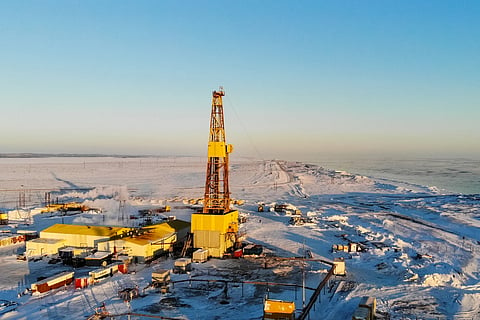

Norwegian activists, aided by environmental organisation Natur og Ungdom (Nature and Youth) and Greenpeace Nordic submitted additional arguments to the European Court of Human Rights (ECtHR) on August 16. The documents are in support of their ongoing lawsuit against Norway’s oil and gas expansion plans in the Arctic region.
It is no secret that the vigorous scramble for resources in the thawing Arctic Circle runs at the cost of an adversely changing climate. But environmentalists have run pillar to post to prevent the damage caused by these activities.
The submission of additional documents comes three years after the filing of the lawsuit in 2021, when the concerned parties had filed an application to the ECtHR which challenged Norway’s fossil fuel expansion in the Arctic region.
So, the court would now assess whether Norway’s fossil fuel expansion in the Arctic violated human rights and a ruling is expected to be issued later this year.
In 2016, the two organisations had filed an application against the Norwegian state before the court in Norway. They argued that the country's decision to expand oil and gas extraction in the Arctic region in the middle of the climate crisis violated the Norwegian constitution.
The Norwegian government had given approval for oil companies to develop 19 oil and gas fields in 2023. It was reported that the investments exceeded $18.5 billion while Norway claimed that oil and gas expansion are essential to Europe’s energy security.
The plans for development and operation of the subsea fields — Irpa and Verdande — and the production well Andvare in the Norwegian Sea were also approved by the Norwegian authorities.
Soon after Norway's approval for 19 oil and gas fields was announced, environmentalists announced that they were taking the dispute on three of these 19 fields to the court. They claimed that these projects violate Norway's constitution and international human rights commitments.
The three fields that are legally challenged by campaigners were Yggdrasil, Tyrving and Breidablikk. Campaigners said that their impact assessments were either non-existent or inadequate and thus applied for a legal injunction on construction.
The Oslo District Court, on January 18, 2024 passed an order which declared the Ministry of Energy's approval of the development plans for the Breidablikk, Tyrving and Yggdrasil fields as invalid.
Norway is being targeted as part of a growing trend of climate litigation based on the effects of the climate crisis on fundamental human rights.
The NGOs and climate activists behind the lawsuit hope that a favourable outcome at the ECtHR would provide a precedent to support further action against other governments and corporations that are supporting fossil fuel expansion.
Explaining the decision to continue pursuing the case, Frode Pleym from Greenpeace Norway was quoted as saying, “The ECtHR’s review of our case highlights how climate change is affecting human rights”.
It is widely reported that the Norwegian fossil fuel policy is fuelling the climate breakdown leading to extreme weather events claiming lives, wrecking homes and destroying livelihoods, cultures and depriving the youth of their future.
Experts at the International Institute for Sustainable Development found that the resources discovered beneath the polar ice caps in the Arctic in 2024 threaten to unleash 12 billion tonnes of CO2 if fully exploited—more than the past four years’ discoveries combined.
Developed countries such as the United States, Canada, Australia, Norway, and the United Kingdom have issued two thirds of the global number of oil and gas licences since 2020. China, Mexico, and Russia are set to license the biggest volumes of oil and gas in the second half of 2024.